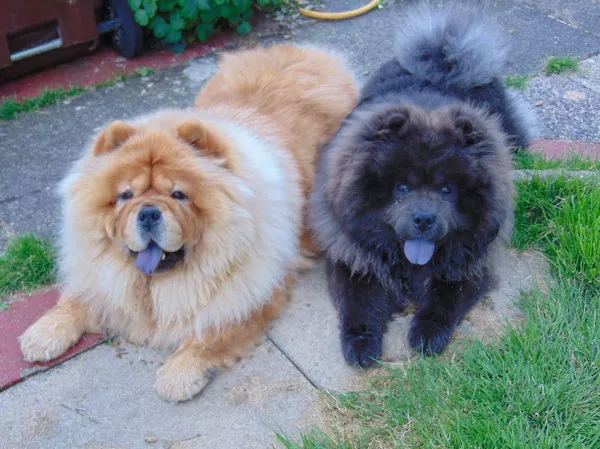Chow Chows are an ancient breed known for their distinctive appearance and unique personality. With their lion-like manes and independent demeanor, they make for both impressive companions and loyal family members. However, like any dog breed, training a Chow Chow requires patience, consistency, and understanding. In this comprehensive guide, we will delve into the specific needs of this breed and provide step-by-step instructions on how to train a Chow Chow effectively.
Understanding the Chow Chow Breed
Before embarking on a training journey with your Chow Chow, it’s crucial to have a solid understanding of their breed characteristics. Chow Chows are known for their independent and aloof nature. This can make them appear reserved or even standoffish, especially around strangers. Additionally, they are highly loyal to their families and may exhibit guarding behaviors. This unique blend of traits requires a balanced and tailored training approach.
1. Start Early: Socialization and Puppy Training
Socialization:Early socialization is paramount for a well-rounded Chow Chow. Expose your puppy to various people, animals, sounds, and environments. Positive encounters during the sensitive socialization period (8 to 16 weeks) can help prevent future behavioral issues.
Basic Commands:Begin with basic commands like sit, stay, and come. Use positive reinforcement techniques such as treats, praise, and toys. Consistency is key; practice these commands daily in short, focused sessions.
2. Establishing Leadership and Respect
Chow Chows are naturally inclined to assert themselves, so establishing yourself as a strong but compassionate leader is crucial.
Positive Reinforcement:Use positive reinforcement techniques to encourage desired behaviors. Reward your Chow Chow with treats, affection, or playtime for following commands or displaying good behavior.
Avoid Harsh Punishments:Avoid harsh training methods or punishment, as Chow Chows can be sensitive and may become stubborn or even fearful if treated harshly. Focus on rewards and redirection instead.
3. Leash Training and Recall
Leash Training:Chow Chows have a tendency to pull on the leash due to their independent nature. Teach loose-leash walking by stopping when they pull and rewarding them when the leash is slack. Be patient and consistent, and use high-value treats to reinforce good walking behavior.
Recall Training:Recall training is essential for a breed that can be independent-minded. Practice recall in a secure, controlled environment. Gradually increase distractions and distance while rewarding a strong recall with praise and treats.
4. Addressing Guarding Behaviors
Resource Guarding:Chow Chows may display resource guarding tendencies. Counteract this behavior by teaching the “drop it” and “leave it” commands. Trade toys or treats to show your Chow Chow that relinquishing items leads to positive outcomes.
Guest Etiquette:To manage their reserved nature around strangers, expose your Chow Chow to various visitors and teach them polite guest behavior. Reward calm interactions and discourage jumping or excessive barking.
5. Mental Stimulation and Enrichment
Chow Chows are intelligent dogs that require mental stimulation to prevent boredom-related behaviors.
Interactive Toys:Provide puzzle toys and interactive games to challenge your Chow Chow’s mind. These activities can help prevent destructive behaviors caused by boredom.
Training Variability:Keep training sessions engaging by varying routines and incorporating new commands or tricks. This prevents your Chow Chow from becoming bored and disinterested.
6. Grooming and Handling Training
Chow Chows have a luxurious double coat that requires regular grooming. Introduce grooming and handling early to ensure they are comfortable with these activities.
Gradual Desensitization:Begin by gently touching and handling your Chow Chow’s paws, ears, and body. Gradually increase the intensity and duration of these interactions. Use treats and positive reinforcement to create positive associations.
Conclusion
Training a Chow Chow can be a rewarding experience that strengthens the bond between you and your furry companion. By understanding their unique breed traits and tailoring your training approach, you can help your Chow Chow become a well-mannered and well-adjusted member of your family. Remember, patience, consistency, and positive reinforcement are the cornerstones of successful Chow Chow training. With dedication and love, you can guide your Chow Chow toward becoming a confident and obedient companion for years to come.


